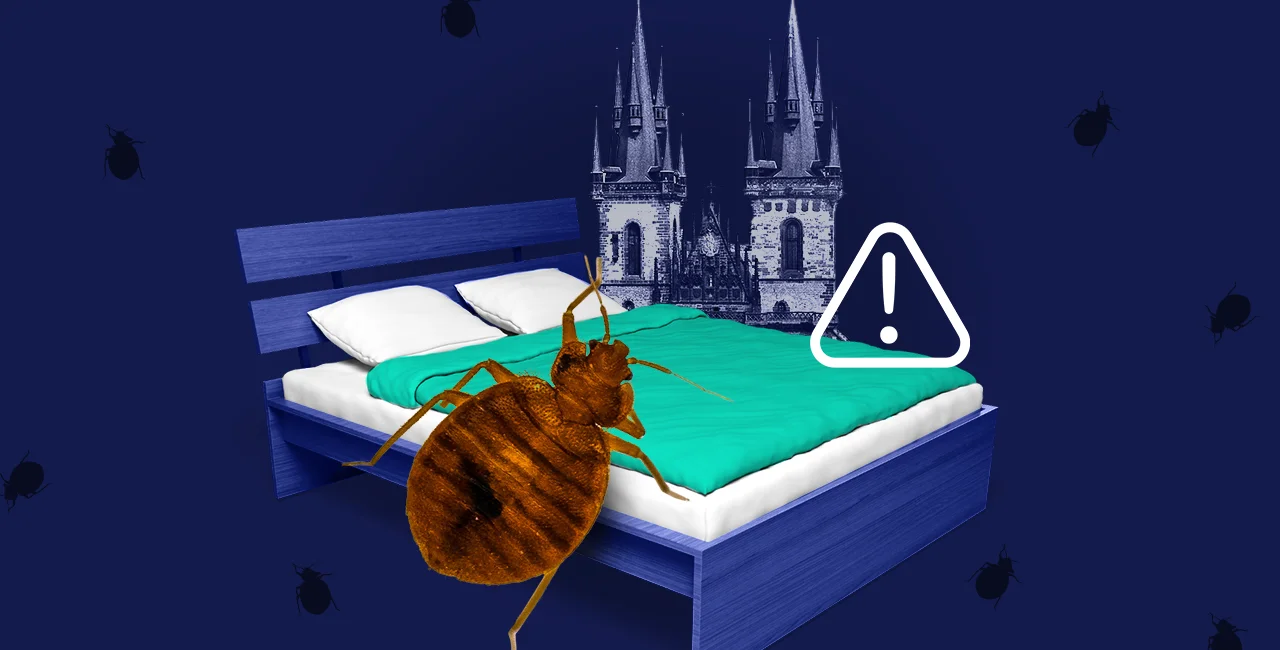Nowadays, are parts of your body itchy in the morning, or do you sometimes see strange marks on your skin? There could be a good reason for this: according to a new press release by the State Health Institute (SZÚ), bed bugs are becoming more frequent in Czechia.
SZÚ figures show that demand for bed bug extermination in Czechia is on the rise, with pest control companies in the country recently reporting a 15-percent rise in callouts compared to the beginning of this year.
Prague irritated by bed bugs
Prague, like many other popular tourist destinations in Europe, is waging a battle against bed bugs in its accommodation facilities such as hotels, hostels, and university dormitories. According to workers at Prague’s main hygiene station, the occurrence of these pests is alarmingly high, with up to two mass cases reported each week. Bed bugs are notorious for their rapid multiplication and ability to spread via luggage or the soles of shoes.
Bed bugs, also known as house bugs, measure around 5 millimeters (mm) and feed primarily on human blood. They tend to hide in mattresses and bedding, and can easily travel in clothing or bags. While they had largely disappeared from most Western societies by the 1950s, they started to reappear approximately 30 years ago.
Exterminators also note that the most common months for outbreaks of bed bugs are in August and September when people travel and move most often between different areas.
Spokesperson of Prague hygiene station Zbyňek Boublík said this week that the spread of bed bugs is related to the increased movement and mobility of people, adding “modern society has almost forgotten about these small parasites.”
WHAT TO LOOK OUT FOR
- Live adult bed bugs are visible without the need for magnification and are approximately the size of an apple seed.
- Bed bug nymphs, which are immature bed bugs, are smaller than adults, ranging from 1.5 to 4.5 mm in size. They tend to be translucent to tan in color, especially when they have not fed.
- Bed bug eggs are extremely challenging to spot with the naked eye. They are roughly the size of a pinhead (about 1 mm) and have a pearly-white appearance.
- Molted exoskeletons: As nymphs develop into adults, they shed their skin five times. These discarded skins are left in hiding places and can often be found on bedding.
- Feces appear as small, dark spots that may smudge and bleed into fabric.
Source: Ngpest.com
While considered an annoyance, bed bugs are typically not dangerous; they do not carry or transmit disease-carrying bacteria. However, they can cause serious issues when a person is allergic to the bugs. The bites, then, can cause serious skin swelling, inflammation, and even anaphylaxis (a potentially life-threatening allergic reaction that disrupts breathing).
Prevention and vigilance needed
By law, accommodation operators are required to conduct regular preventive disinsections and additional treatments if bed bugs are indeed found. The occurrence is then reported to the regional hygiene stations, which oversee the hygiene standards of accommodation in the city. Hygiene stations also have the power to visit an accommodation facility and make inspections for the presence of the bugs.
Spokesperson of Prague hygiene station Zbyňek Boublík“We advise people to carefully inspect all luggage after returning home from trips, possibly even the soles of their shoes. We also advise washing your clothes at the highest possible temperature. If possible, use a tumbler and iron the clothes afterward.”
Petr Helekal from the pasti.cz anti-pest e-shop points out that bed bugs have developed resistance to some active substances, making the battle against them even harder. “Ordinary, universal [anti-pest] sprays will not harm them. Sprays developed specifically to control bed bugs must be used,” he says in Deník.cz.
How to treat bed bugs
- Bed bugs and their eggs die at around 45 degrees Celsius, so washing your bedding and clothes at this temperature for 90 minutes should remove them.
- You can also steam all your bedding and clothing at the same temperature.
- Freezing temperatures are also known to kill bed bugs, but not their eggs.
- Insecticides on the Czech market, such as Protect 500, are intended to kill bed bugs.
- If you are bitten, calamine lotion or ointment containing cortisone or diphenhydramine should help relieve itching and swelling. Products available on the Czech market are tea tree oil and "After Bite."
The Central Bohemia region has in recent months reported the highest increase in bed bugs, at 33 percent, followed by the Moravia Silesia with a 27 percent rise. While the increase in demand for bed bug extermination services in the Czech Republic may not be as significant as in other countries, it highlights the need for continued vigilance and effective measures to control these resilient pests.












 Reading time: 4 minutes
Reading time: 4 minutes 


























